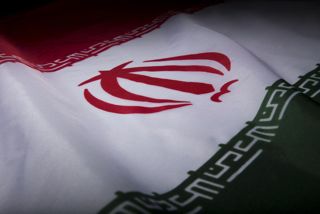By Karim Pakravan
In his State of the Union Address, President Barack Obama reminded us of the importance of the current P5+1 negotiations with Iran on that country’s nuclear program. Yet, hardliners in the U.S. Congress are seeking to derail these negotiations by passing legislation that would threaten new sanctions on Iran. Furthermore, Senator Robert Menendez (D-NJ), a cosponsor with Senator Mark Kirk (R-IL) of the Nuclear Weapon Free Iran Act of 2015, shamefully went as far as stating that the President’s comments on Iran sounded like Iranian talking points.
Let’s review the facts: years of negotiations between the P5+1 (the five Permanent members of the UN Security Council—the U.S., Russia, China, France and the UK—plus Germany) finally resulted in an interim accord in November 2013. This Joint Plan of Action (JPA) effectively froze Iran’s nuclear program and reduced its stockpile of fissile material in exchange for limited removal of some economic sanctions. Despite the failure to reach an agreement last November, the JPA has been extended while talks continue. While crippling economic sanctions were an important factor in bringing Iran to the negotiating table, Iran’s president Hassan Rouhani seems also to genuinely want to reintegrate Iran into the global community.
There is no doubt that Iran’s regime is a repressive theocracy that sponsors terrorism worldwide and has a long record of enmity towards the United States and Israel. But we should also consider that Iran is a vibrant and dynamic country of 70 million people, 70 percent of whom are under the age of 30. It is a highly educated population that is the most pro-Western and pro-American in the region. Despite years of repression, the democratic aspirations of the Iranian people remain alive, and this is precisely why Iran’s hard-liners fear an agreement with the West.
Opponents of the current talks claim that they want a deal that will shut down Iran’s nuclear program. However, they deliberately ignore history. No diplomatic agreement can be perfect. Since the 1960s, the U.S. and the Soviet Union signed a number of important treaties in which each side compromised. The key to the implementation of these treaties is verification—to quote the late President Ronald Reagan, “Trust, but verify.” An agreement that severely limits Iran’s nuclear enrichment program and transforms existing and future stockpiles of enriched uranium to uranium rods or ships them to a third party will be the best insurance against any putative path to an Iranian nuclear bomb. The key is once again a strict verification program. Moreover, the reintegration of Iran in the global body politic and economy will empower the forces of moderation, energize Iran’s private sector, and give renewed hope for progress towards democracy to the country’s buoyant civil society.
The alternative to an agreement is not the status quo, but an unraveling of the coalition that America has spearheaded, the empowering of Iran’s hardliners, and ultimately, military conflict. As an Iranian-American, I do not want to see war between my country of birth and my adopted country, both of which I deeply love. Neither do the American people.
Paradoxically, it is those who here or abroad oppose negotiations who are doing the bidding of Iran’s hard-liners, who also oppose any nuclear agreement with the United States and who want nothing more than isolation and conflict. In fact, they have proposed legislation in the Iranian Parliament that would, effectively, achieve the same purpose as the Kirk-Menendez bill—kill the deal. The same people who brought us the Iraq war want to bring us another conflict—remember the neo-con mantra in 2003: “Real men go to Tehran.”
Fortunately, cooler heads have prevailed—for the time being. Only eight Democratic senators are co-sponsoring the Kirk-Menendez sanctions proposal, and they do not want a vote until negotiations have concluded. The Republicans in the U.S. Congress overplayed their hand when Speaker John Boehner brazenly invited Israeli Prime Minister Benjamin Netanyahu to address Congress on the Iran issue without consulting the White House or his Democratic colleagues. The indignation that arose from this clearly intended disrespectful act has forced increased sanctions supporters to back off on introducing legislation until March 24th. In any case, President Obama has repeatedly said that he would veto any such legislation.
Conditions for an agreement are here, and the collapse in oil prices has significantly increased pressure on Iran’s beleaguered economy. A good and lasting agreement is one that puts verifiable limits on Iran’s nuclear program, one that is enforceable and one with which both sides can live in the long term. It is urgent that Democrats unite at all levels to support President Obama’s diplomatic initiative. The alternative is unthinkable.
Karim Pakravan is an Iranian-American academic living in the 10th Congressional District and a national board member for the National Iranian American Council.

